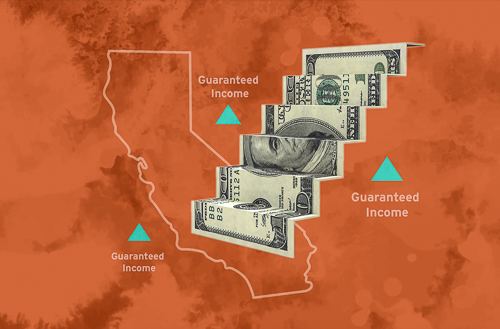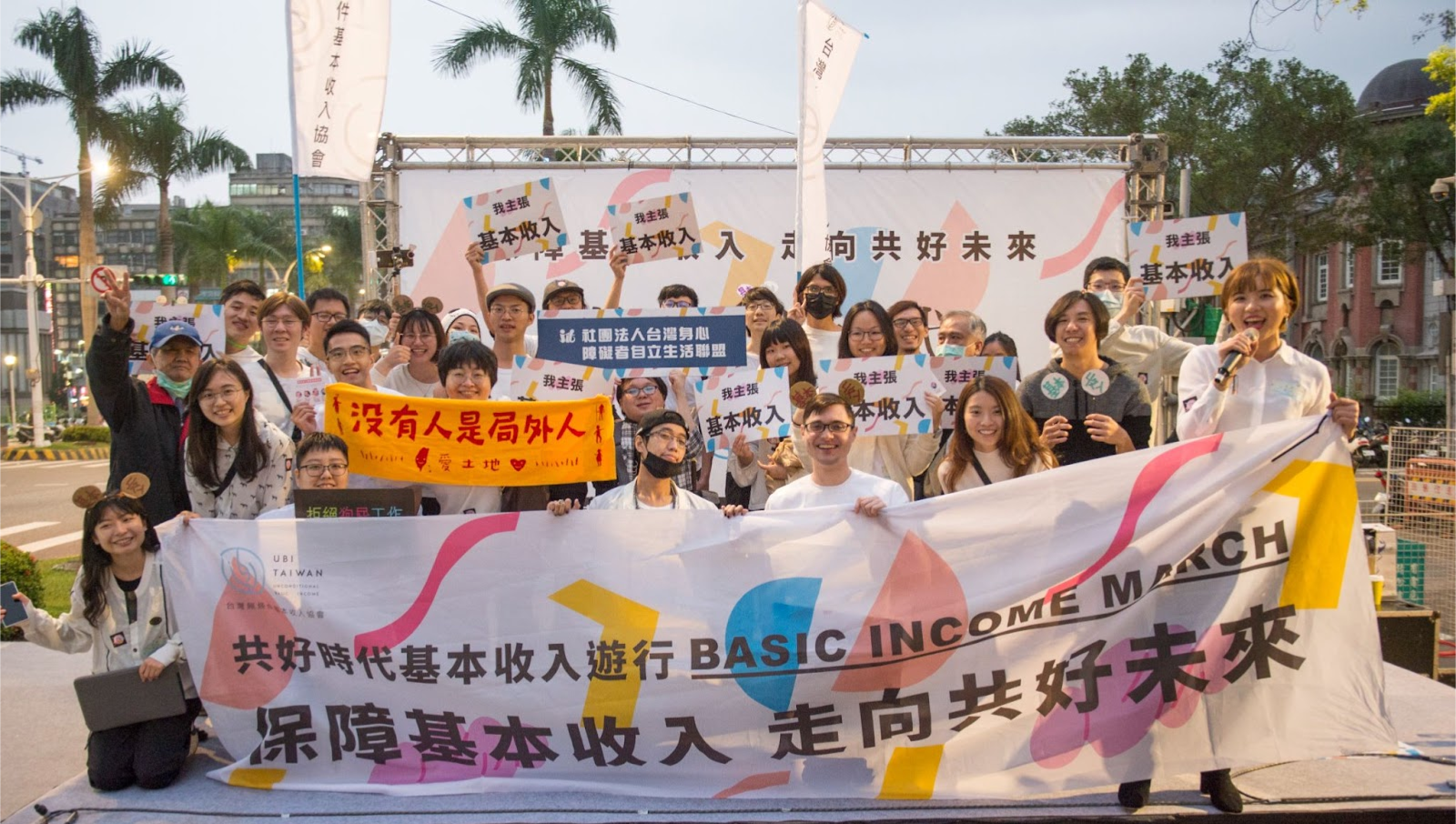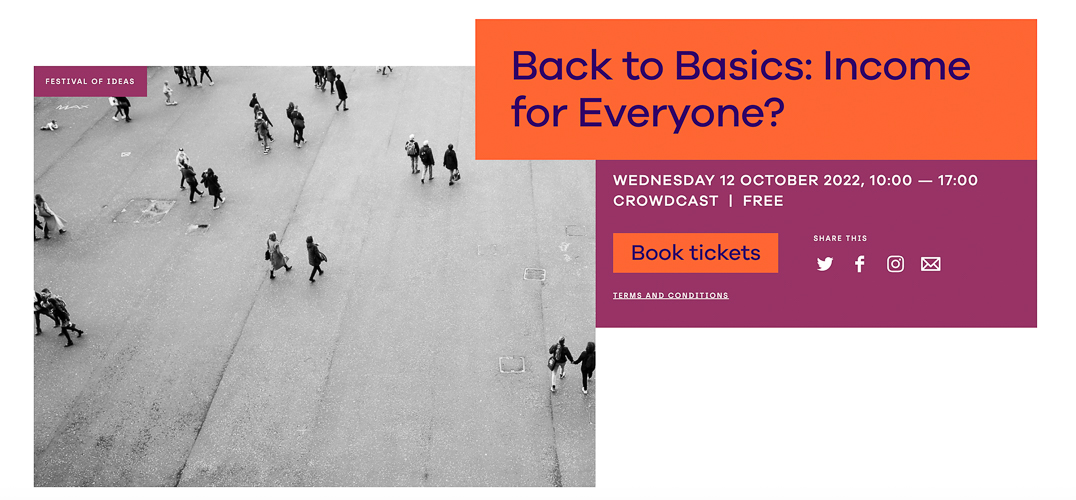
by Peter Knight | Mar 5, 2023 | News
Illustration above by Miguel Gutierrez Jr., CalMatters; iStock
“State and local governments, and some private funders, are launching dozens of pilot projects making direct, monthly payments to low-income residents to help meet basic needs. Researchers will study what happens next. Key question: will this money add to, reform, or supplant current welfare programs?
Four years after Stockton conducted a nationally-watched experiment, giving 125 households $500 a month with no strings attached, dozens of programs throughout California are testing the idea of a guaranteed income.
CalMatters identified more than 40 similar pilot programs that have run, are operating or are planning to launch around the state. They are sending certain groups of low-income people regular, unrestricted cash payments ranging from $300 to $1,800 a month for periods of six months to three years, depending on the program.”
Read more and search a database of the California pilots here.

by Peter Knight | Feb 13, 2023 | News
An article in the New York Times published February 13 states that “For recipients, it’s a lifeline. For liberal supporters, it shows how expanding government can make a difference. For conservatives, it’s a return to wasteful welfare handouts.”
“Chicago and the surrounding suburbs of Cook County are conducting the largest experiment of its kind in the nation, an effort to supply thousands of residents with a basic level of subsistence, not in the form of food, housing or child care — just cash. Ms. Lightfoot’s $31.5 million Resilient Communities Pilot selected 5,000 city residents in August to receive a guaranteed cash income for a year. The first $500 checks from a separate program, a $42 million county pilot, went out in December to 3,250 residents concentrated in the near-in Chicago suburbs.”
Read the full article here.

by Tyler Prochazka | Jan 17, 2023 | Featured
Taiwan is making history by sending out a one-time universal cash payment of $6,000 New Taiwan dollars (NTD) to every citizen “young and old.” This is the first time the country has implemented such a policy, and it comes as a result of excess tax revenue of $450 billion NTD, much of which is coming from corporate taxes that have seen record-high profits. $140 billion NTD will be dedicated to the cash payments, with the remainder going towards improving labor and health insurance systems and providing funding for local governments.
UBI Taiwan hailed the move as a victory for Taiwanese citizens, as the payment is unconditional and universal, meaning that everyone in the country will receive it, regardless of income or other circumstances. They said it reflects the growing demand that a greater proportion of Taiwan’s growth is shared with average families.
“This is a huge victory for the basic income movement,” UBI Taiwan founder Tyler Prochazka said.
UBI Taiwan promotes unconditional basic income (UBI) in Taiwan. UBI is a policy that periodically sends out unconditional cash payments to every citizen in a country regardless of an individual’s income or job status.
The organization has noted the problem of stagnant wages for the last two decades in the country and the rising cost of housing. Through basic income payments, they argue that many Taiwanese could pursue better opportunities and improve their education.
“Unconditional cash transfers are an efficient way to provide an ‘economic vaccination’ to make sure that everyone can face the future in a healthy and happy manner,” said Jiakuan Su, the new chairman of UBI Taiwan.
Over the last few years, Taiwan’s economy has experienced record-breaking 6.45% GDP growth in 2021 and over 8.73% growth in exports in 2022. However, most people have not enjoyed the fruits of this economic growth, as a 104 Job Bank survey found that real wage growth was nearly zero in 2022 due to inflation. The universal cash payment is a way for everyone to have a small share in Taiwan’s economic success.
“With the rise of the pandemic over the last few years, Taiwan has experienced rapid changes in its economy and society,” Su said. “We have experienced directly why Taiwan needs a resilient social welfare system to protect each person’s economic security.”
Since the payment is equal to all taxpayers, it will have a progressive effect with a greater proportion of the refund going to low-income earners. There is some expectation that the cash payment could help stimulate the economy because low-income households are more likely to use the money to satisfy their essentials, such as food and housing, freeing up some additional discretionary money for recreational uses as well. A greater willingness to spend by average families could help smaller businesses that may have struggled since the pandemic.
Both political parties have agreed on the general outline of the proposal and the cash could be sent out as soon as February. A surprise has been that the plan appears to be a universal rebate of the revenue instead of a targeted one, which will make it easier for everyone to apply and reduce administrative costs and time. One area still under consideration is whether foreign taxpayers will receive any of the money.
Previous cash assistance schemes during the pandemic were targeted and a stimulus voucher was sent universally. The pandemic vouchers were limited in how they could be spent and had an expiration date, similar to the vouchers under former President Ma Ying-Jeou.
Members of the Kuomintang (KMT) and Taiwan People’s Party (TPP) argued during the pandemic that cash should have been sent out instead of vouchers. At the time, the TPP held a news conference with UBI Taiwan to discuss the benefits of cash over vouchers. Many also complained that the targeted cash programs were difficult to receive because of the strict conditions.
Research by the World Bank later demonstrated that the simplicity of universal and unconditional cash payments during the pandemic increased access to the assistance and likely provided economic stimulus. Previous research showed a multiplier effect up to $2.6 for every dollar sent. Fears of saving the cash were largely overblown. For example, in over a dozen economies primarily in East Asia, 40 percent of the universal cash transfers during the pandemic were directly used for consumption.
Besides improved standard of living, research on basic income consistently shows improved mental health and trust in society. A meta-analysis of basic income policies looked at eight governmental reports as well as seven peer reviewed studies. They found there was justification that the alleviation of stress from financial instability could be a reason for improved mental health from basic income.
There have been criticisms of the current cash payment plan, including concerns about inflation. However, it is important to remember that this is surplus tax revenue that has already been collected and is not new money created by the central bank. An effect on inflation is just as likely if the government directly spends the money or if it is sent back to taxpayers.
Additionally, while it is true that Taiwan’s insurance systems require further reforms for sustainability, the vast majority of the surplus revenue is being used to shore up these systems and provide an emergency fund. A one time injection of funds is helpful but will not save these systems in the long run.
Previously, basic income advocates from UBI Taiwan have suggested that Taiwan could establish a sovereign wealth fund (SWF). Such a fund would act as a guarantee that Taiwanese could enjoy more equity in the growth of Taiwan’s economy even if wages remain stagnant. Excess revenue could be placed in the SWF and invested in the economy, with dividends from the SWF distributed back to the people each year, similar to the system in the US state of Alaska. The Alaska Permanent Fund sends out a yearly payment from the oil revenue generated in the state. In 2022, the universal payout reached a record high of $3,284 USD.
“I applaud the government’s decision to send the universal cash transfer and hope this establishes the precedent for Taiwan to consider making this a permanent policy,” Su said.
Prochazka furthered that by making this payment equal to all citizens, the government is taking the “first small step” towards ensuring that the benefits of economic growth are shared by all.

by Peter Knight | Oct 5, 2022 | Events, News
Leading thinkers, politicians and policymakers come together to debate and explore basic income pilots, macro-economic models, the prospects for basic income in developing economies, and political economy of social and economic change.
Join Bristol Ideas for ‘Back to Basics: Income for Everyone?’ – the third conference from the University of Bath Institute for Policy Research (IPR) and Bristol Ideas, supported by the Basic Income Forum.
In recent years, interest in basic income has grown around the world. Basic income is an unconditional income paid to every individual. It is a payment that is not means-tested or made conditional on work-status. Advocates of basic income argue that it represents a fair, simple and efficient way of supporting individuals, in contrast to the complexity and intrusiveness of existing welfare states. Many also argue that automation and the rise of precarious work makes a basic income necessary to replace or supplement wage labour.
The Covid-19 pandemic and cost of living crisis has thrown these issues into sharp relief, as governments around the world have scrambled to close gaps in social safety nets and prevent people falling into poverty. At the same time, treasuries and central banks have mobilized the full range of fiscal and monetary policies to prevent today’s crises tipping economies into deep recessions. State intervention in the economy has expanded, while ideological support for austerity has sharply receded. Arguments about whether a basic income is affordable are being made in a dramatically changed intellectual and political context.
Read more here.

by Guest Contributor | May 16, 2022 | Opinion
On March 9th, 48.56 percent of Korean people voted for Yoon Seok-yeol of the People Power Party which won only 0.7 percent more compared to 47.83% for Lee Jae-myung who pledged to implement basic income. With less than 1 percent difference in his loss, there is a local election coming in two weeks and another general election in two years. Where will Korea’s basic income movement go after Lee Je-myeong ‘s defeat?
Yoon Suk-yeol can no longer ignore Universal Basic Income, and the world is on the verge of realizing basic income. Yoon Seok-yeol, who became the new owner of Cheongwadae (Blue House), cannot pass any legislation without the consent of the Democratic Party with 172 seats, 57 percent overall. HIs People Power Party only holds 110 seats which represent 36 percent. This will remain the case unless they get more seats in the upcoming general election in two years. On the contrary, it is also a story that the Democratic Party of Korea can legislate the basic income that Lee Jae-myung promised if he is elected as a member of parliament in the by-election.
I interviewed Oh Jun-Ho, who was the presidential candidate for the Basic Income Party about the difference between Lee Jae-myung’s basic income pledge and his.
Oh Jun-Ho: There are three differences between my UBI policy from Lee Jae-myung’s:
1) First of all, the amount of the UBI is different. We promised 650,000₩ (533$) per month, which can support enough basic need for a living in Korea but Candidate Lee Jae-myung offered a very low amount of 83,000 ₩ (68$) per month.
2) In order to raise the financial resources, I insisted on reforming the tax and tax system to solve the polarization of wealth, and to expand basic income through redistribution of wealth, but candidate Lee Jae-myung does not seem to redistribute wealth because he drew a line about raising taxes. He is weak on that point.
3) Compared to us, presenting universal basic income as a policy and pledge, candidate Lee kept it as a pledge but hid or made his choice ambiguous in the election. It was disappointing for those who supported basic income with Lee, saying, “If there is public consent, we can do it, but if not, we won’t” (as quoted by The Korea Economic Daily, Dec. 2nd, 2021). Conversely, this is also the reason why those disappointed with Lee’s basic income supported me, Oh Jun-Ho.
Limitations:
The election was only focused on both parties so there were no alternative policy debates. As a voter and candidate, there was no such place where I could talk about UBI. Since only both camps had fights and policy spaces were not open, it was difficult to inform us of alternatives by ourselves as minor and minority parties.
Nevertheless, because I was there, there could be a future alternative to basic income or a justification for basic income. Because I criticized Lee Jae-myung’s timid basic income and the attitude of the Justice Party and other political parties toward selective welfare. I was able to inform the public that basic income was justifiable a little. In addition, public voters who support basic income have been created.
Expectations:
Though the results of the vote did not appear to be significant due to the phenomenon of leaning toward both parties, it cannot be evaluated only in this election, and it will be evaluated in the long-term trend later. Even if the people did not support this time, positive perceptions must have grown, and I am optimistic that Korea will return to positive support for the subsequent movement in the next election.
Considering that we are a new party, one member of the National Assembly, and only a small number of members, I don’t think we had too few votes (0.05%). Since other parties with a lot more party members won fewer votes than us, there is still a task of expanding the organizations and the number of voters who supported us, and we have to solve it well to expand our support.
Under the Yoon Seok-yeol administration, it is unclear whether Lee Jae-myung or his supporters will be one who can lead UBI in Korea from now. However, Seoul, which held a hopeful and important election, has enough potential to ignite it again.
Local Elections:
Local governments themselves do not have tax rights, so they cannot collect and distribute taxes. We can’t talk at the national level. However, whether it is real estate or industry, there has been a problem that the common interests created within the common body have not been distributed, so we will talk about returning them to basic income, universal welfare, and universal services that must go to the majority in each province.
I also interviewed An Hyo-sang, the chair of BIKN about the election.
An Hyo-sang: We need time to think about evaluating the process and results of the presidential election. But we have the local election soon. So we quickly need to talk about it. From a broad viewpoint, we must think about the weak points and strong points we had.
We considered 2 viewpoints.
First, what conditions can BI have in its position before the election? Basic Income gained traction for implementation because of a confident and strong politician. Lee embraced the Basic Income idea as his election pledge. Since the base of BI movement is not strong, there was a very broad gap between the front line candidate Lee was based and where the basic Income movement is positioned. So after Candidate Lee was defeated, the bubble of basic income ideas that people enjoyed blew up.
We need to face the reality of where the basic Income movement is positioned. We will have to try to gain broad and strong support from the ordinary people step by step with education, campaigns, propagation, organizations, and so on.
Despite Lee’s defeat and still our weakness, his idea planted the seeds of the basic income idea worldwide which will be widespread someday. We will harvest the fruits of our effort. We need to take time to see these fruits.
Second, as a center of the Basic Income movement, the Basic Income Korean Network (BIKN) will have two directions for the local election.
1) We will deepen our theory of our basic Income because we need a stronger theory and legitimation in order to gain wide popular support.
2) We have Basic Income supporters without and with political preferences. Some politicians still support BI idea as his policy, especially at the local level. Academics and activist social movements still support the BI idea so we will try to link personalities, individuals, and groups who support BI.
Korea’s basic income movement, beginning with the 2007 presidential election pledges from the socialist party, has become widespread within just 15 years. According to Kanta Korea Research Company, 38.6 percent of the respondents said they were in favor of basic income, 52.3 percent did not know and 9 percent didn’t answer. 1,012 men and women aged 18 or older nationwide were targeted (Seoul Economy, Feb. 20, 2020).
The BIEN congress will be held again in Korea on Aug 24th-26th, 2023. The title is “Basic Income in Reality.” I expect the Basic Income Party to gain wide popularity in 17 cities with 19 candidates at the local election and the 2023 Korea BIEN Congress to draw attention worldwide so that it can lead a great success in the general election for Basic Income implementation.
Local elections will be held on June 1, in two weeks. Can the Democratic Party promote the universal basic income of the entire nation as a pledge in local elections?
Since Lee Jae Myoung is running for the MP, Lee’s election camp says ‘this is whether Lee ‘s life or death’ as former president Lee Myong bak was trying to kill Roh Moo-hyun, and he seems to be winning. But he doesn’t talk about BI in his pledges during the democratic party’s local elections as well. But the Basic Income Party does out front, promoting basic income in all cities with a UBI of $78 a month.
Where will Koreans raise their hands again, when Yoon Seok-youl refuses to work at Cheong Wa Dae (Blue House) given by them, but they started to work in Yongsan District all of sudden due to his private beliefs?
Lee Jae-myung’s basic income pledge was as follows below in the presidential election:
- Universal basic income for all citizens
- After the public debate of the Presidential Basic Income Committee, it will be implemented by collecting public opinion.
- Starting at 250,000₩ ($205) a year. A goal of 1,000,000₩ ($820) per year within the term by 2027
- Land profit dividends and carbon dividends
- Basic income is paid in local currency
- Basic income and allowances by target
- Basic income of 1 million₩ ($820) per year to young people aged 19-29 from 2023
- Expanding the scope of child and youth allowances (step-by-step expansion, until the age of 18 in 2027)
- Payment of seniority allowance
Written by: Mok Hwakyun (Moka)






